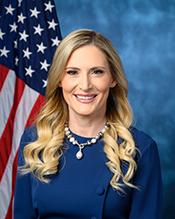H.R. 440: READY Accounts Act
This bill, titled the READY Accounts Act, proposes the establishment of a new type of savings account known as Residential Emergency Asset-accumulation Deferred Taxation Yield (READY) accounts. These accounts are specifically designed to help individuals save funds for qualified home disaster mitigation and recovery expenses. Here are the primary features of this bill:
Account Overview
A READY account is a specially designed trust that allows individuals to set aside money to cover costs related to home disasters, such as repairs following severe weather or other casualties. The funds can only be used for qualified expenses that contribute to disaster preparedness or recovery.
Tax Deductions
The bill allows individuals to deduct contributions to their READY accounts from their taxable income. Key points include:
- The maximum deduction for contributions is set at $4,500 per year.
- This amount will be adjusted for inflation in future years.
- Only cash contributions are allowed, and no part of the trust can be used for life insurance investments.
Qualified Expenses
Expenses eligible for withdrawal from a READY account include costs related to:
- Qualified disaster mitigation measures, such as:
- Installing impact-resistant windows
- Strengthening roof structures
- Elevating homes prone to flooding
- Qualified disaster recovery costs not compensated by other insurance, for example, repairs from fire or storm damage.
Trustee Requirements
The accounts must be managed by a qualified trustee, such as a bank, and must adhere to specific rules outlined in the bill to ensure proper oversight and management of the funds.
Tax Treatment of Distributions
Withdrawals from a READY account used for approved expenses will not be counted as taxable income. However, if funds are withdrawn for non-qualified expenses, they will be subject to taxes and an additional 20% penalty on the amount withdrawn.
Account Guidelines
Specific guidelines include:
- Individuals can have multiple READY accounts, but contributions must not exceed the allowable deduction limit.
- Excess contributions can be returned without penalties if done by the tax filing deadline.
- In case of divorce or the death of the account beneficiary, specific rules will apply to how the accounts are treated.
Reporting and Regulations
The Secretary of the Treasury is authorized to require regular reporting from trustees regarding account contributions, distributions, and any excess contributions, as well as to establish necessary regulations to prevent abuse of the accounts.
Implementation Date
The provisions of the READY Accounts Act would take effect for taxable years beginning after December 31, 2024.
Relevant Companies
- DRI (Darden Restaurants Inc.) - As a company focused on the restaurant sector, it may experience changes in consumer spending patterns if individuals allocate more funds to saving for emergency preparedness.
- ALL (The Allstate Corporation) - As a major insurance provider, this legislation could influence the demand for disaster-related insurance policies as homeowners may feel more secure having dedicated funds for mitigation and recovery.
This is an AI-generated summary of the bill text. There may be mistakes.
Sponsors
5 bill sponsors
Actions
2 actions
| Date | Action |
|---|---|
| Jan. 15, 2025 | Introduced in House |
| Jan. 15, 2025 | Referred to the House Committee on Ways and Means. |
Corporate Lobbying
0 companies lobbying
None found.
* Note that there can be significant delays in lobbying disclosures, and our data may be incomplete.









